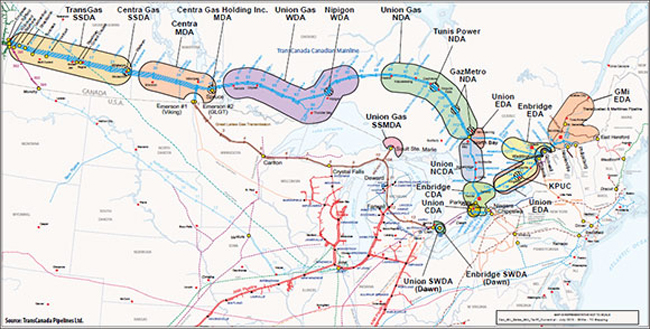Anishinabek Nation welcomes federal announcement on new pipeline consultations
 The Trudeau government announced on January 27, 2016 that it is launching a new interim review process that restore the public confidence in the regulatory process for pipeline projects in Canada. This process will include a new environmental assessment process, additional consultation with First Nations and other steps on the TransCanada Energy East pipeline before it can be approved. The process will take place after the National Energy Board (NEB) has completed its review of the project.
The Trudeau government announced on January 27, 2016 that it is launching a new interim review process that restore the public confidence in the regulatory process for pipeline projects in Canada. This process will include a new environmental assessment process, additional consultation with First Nations and other steps on the TransCanada Energy East pipeline before it can be approved. The process will take place after the National Energy Board (NEB) has completed its review of the project.
Deputy Grand Council Chief Glen Hare welcomed the announcement.
“This is very positive move as the TransCanada East pipeline crosses over a significant amount of our Anishinabek territory and our citizens are committed to protecting and preserving Mother Earth,” said Hare. “We welcome this opportunity to express our concerns.”
Natural Resources Minister Carr stated: “We need to take into account the views and concerns of Canadians, respect the rights and interests of indigenous peoples and support our natural resources sector”.
The new process will require the environment ministry to analyze greenhouse gas emissions that would result from approving pipeline projects and have these results be presented to Cabinet, which will make the final decision on whether to improve the project.
The principles of the new environmental assessment process include the following and more than one-half refer to the protection of First Nation interests:
1. No project proponent will be asked to return to the starting line — project reviews will continue within the current legislative framework and in accordance with treaty provisions, under the auspices of relevant responsible authorities and Northern regulatory boards;
2. Decisions will be based on science, traditional knowledge of Indigenous peoples and other relevant evidence;
3. The views of the public and affected communities will be sought and considered;
4. Indigenous peoples will be meaningfully consulted, and where appropriate, impacts on their rights and interests will be accommodated; and
5. Direct and upstream greenhouse gas emissions linked to the projects under review will be assessed.
The Ontario Minister of Energy, the Honourable Bob Chiarelli, welcomed the federal announcement. He stated: “Economic prosperity and environmental sustainability are fundamentally linked, and we must ensure that we develop our energy resources in a smart, sustainable and ecologically responsible manner.”
He reminded us that Ontario took action in 2013 and tasked the Ontario Energy Board (OEB) with giving a voice to the public, First Nation and Métis communities and safety experts on the impacts of the proposed Energy East project to Ontario’s economy and natural environment. The consultations have now been completed by the NEB and this report will be presented to the federal government.
The federal government took this action only one day after the Federal Environment and Sustainable Development Commissioner Julie Gelfand’s latest audit determined that National Energy Board is not doing enough to track whether pipeline companies are complying with conditions set out when projects are approved.
The report found the systems set up by the NEB to check whether companies are keeping their promises when building and operating pipelines are “outdated or inaccurate.” She stated: “The NEB was not able to assure us that they followed up on the regulations or the approval conditions. We made a recommendation that they become much more systematic.”
The compliance conditions are set by the NEB when a project is approved. They are often imposed on a project as a result of concerns raised during public hearings.
Conditions can range from employment requirements for aboriginal people to protection of the environment or safety testing of a pipeline. The report says that in the 49 cases it audited, there were 24 cases between 2000 and 2014 for which the tracking of the company’s compliance was either out of date or files were missing.


